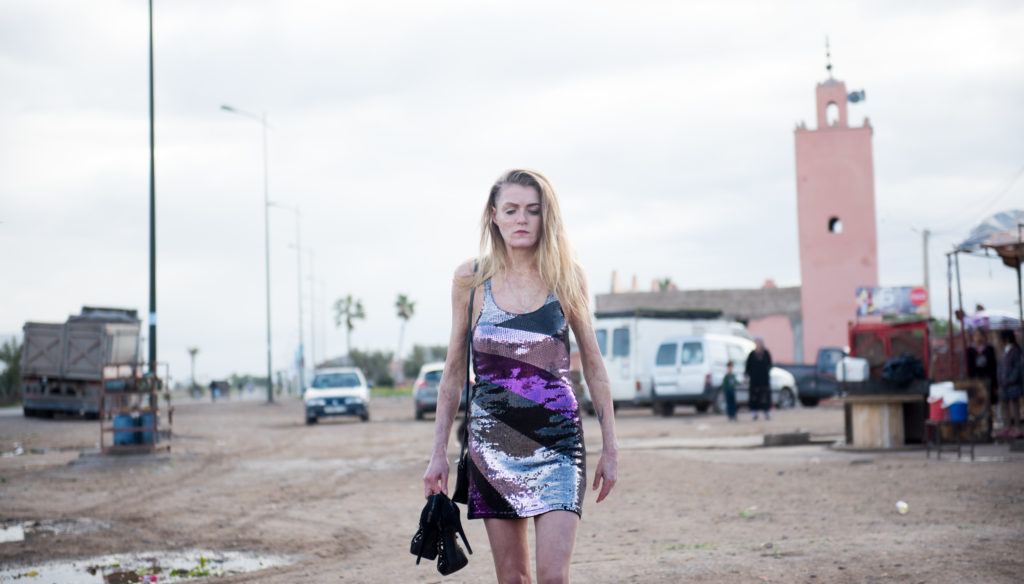Sacha Polak’s BIFA-nominated drama “Dirty God” takes on the nexus of gendered violence and sexual objectification through the portrait of one young woman. Jade (newcomer Vicky Knight) is trying to rebuild her life after an acid attack by her ex leaves her with scars on her arms, torso, and face. As she contends with PTSD and an ongoing fear of her ex, even after he is imprisoned for his actions, Jade is also forced to adjust to a new position in the world: before the attack, she was considered conventionally attractive. Now, people — men in particular — stare at her in fear and disgust, and make cruel remarks.
In a world that tends to value women based on their appearances — and pressures them to fit a very specific standard of beauty — Jade finds herself flailing, and looking for new ways to connect to prospective romantic partners, her family, her friends, and her colleagues. Jade’s toddler daughter is skittish around her when she returns from the hospital; her mother (Katherine Kelly) knows Jade needs support and comfort, but is at a loss at how to provide that. Meanwhile, Jade’s best friend, Shami (Rebecca Stone), is there for her during the good times, but is disengaged when Jade is depressed or frustrated.
Polak was inspired to make “Dirty God” after encountering a woman with severe burn scars on her face. “I looked at her and flinched – my first reaction was to look away. Her face twitched and just looking at that response to my reaction hurt,” the director told Women and Hollywood. “I thought of how terrible it must be to live with scars that you can’t possibly hide. Your face is your identity. It’s the first portal of communication.” She explained, “What is universal about the film is that for each and every one of us it is challenging to be confronted with feelings of external beauty versus internal dignity — a challenge for every woman in the world.”
What sets “Dirty God” apart from many other stories about injury and violence against women is its authenticity. Many of Jade’s scars are real: when she was eight, Knight survived a fire and was left with burns on 33 percent of her body. Likewise, many of the experiences Jade has in the movie — the bullying, the mocking, the humiliation, the self-deprecation — are ones Knight has gone through herself. But the movie’s goal of representation didn’t rest solely on the actress’ shoulders: the filmmakers also conducted extensive interviews with other burn survivors, ensuring that Jade’s story was told sensitively, and honestly.
And “Dirty God” is just that: sensitive and honest. The film offers Jade empathy and, in turn, the audience does, too. Life is not easy for Jade in the events of the film — and probably won’t be in the future — but she’s resilient and courageous. Her looks are only one part of who she is. Let me rephrase that: a woman’s looks are only one part of who she is.
“Dirty God” is now in virtual cinemas. Polak penned the script with Susanne Farrell.







